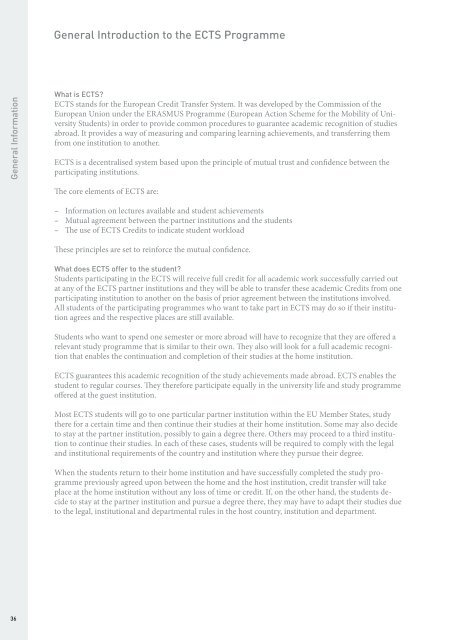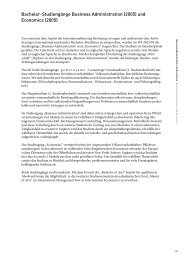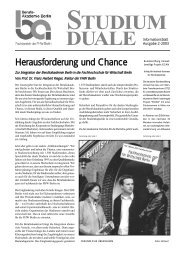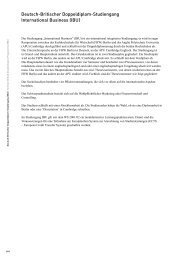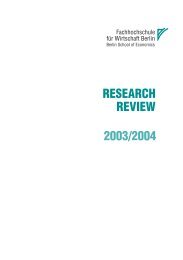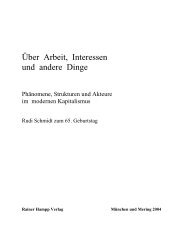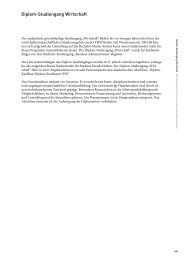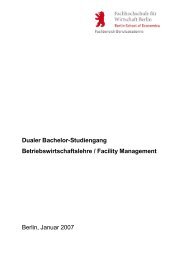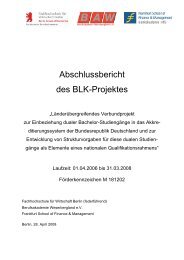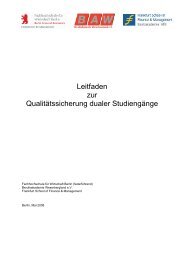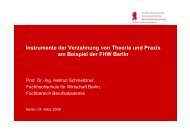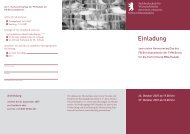European Credit Transfer System 2007 / 2008
European Credit Transfer System 2007 / 2008
European Credit Transfer System 2007 / 2008
Create successful ePaper yourself
Turn your PDF publications into a flip-book with our unique Google optimized e-Paper software.
General Information<br />
36<br />
General Introduction to the ECTS Programme<br />
What is ECTS?<br />
ECTS stands for the <strong>European</strong> <strong>Credit</strong> <strong>Transfer</strong> <strong>System</strong>. It was developed by the Commission of the<br />
<strong>European</strong> Union under the ERASMUS Programme (<strong>European</strong> Action Scheme for the Mobility of University<br />
Students) in order to provide common procedures to guarantee academic recognition of studies<br />
abroad. It provides a way of measuring and comparing learning achievements, and transferring them<br />
from one institution to another.<br />
ECTS is a decentralised system based upon the principle of mutual trust and confidence between the<br />
participating institutions.<br />
The core elements of ECTS are:<br />
– Information on lectures available and student achievements<br />
– Mutual agreement between the partner institutions and the students<br />
– The use of ECTS <strong>Credit</strong>s to indicate student workload<br />
These principles are set to reinforce the mutual confidence.<br />
What does ECTS offer to the student?<br />
Students participating in the ECTS will receive full credit for all academic work successfully carried out<br />
at any of the ECTS partner institutions and they will be able to transfer these academic <strong>Credit</strong>s from one<br />
participating institution to another on the basis of prior agreement between the institutions involved.<br />
All students of the participating programmes who want to take part in ECTS may do so if their institution<br />
agrees and the respective places are still available.<br />
Students who want to spend one semester or more abroad will have to recognize that they are offered a<br />
relevant study programme that is similar to their own. They also will look for a full academic recognition<br />
that enables the continuation and completion of their studies at the home institution.<br />
ECTS guarantees this academic recognition of the study achievements made abroad. ECTS enables the<br />
student to regular courses. They therefore participate equally in the university life and study programme<br />
offered at the guest institution.<br />
Most ECTS students will go to one particular partner institution within the EU Member States, study<br />
there for a certain time and then continue their studies at their home institution. Some may also decide<br />
to stay at the partner institution, possibly to gain a degree there. Others may proceed to a third institution<br />
to continue their studies. In each of these cases, students will be required to comply with the legal<br />
and institutional requirements of the country and institution where they pursue their degree.<br />
When the students return to their home institution and have successfully completed the study programme<br />
previously agreed upon between the home and the host institution, credit transfer will take<br />
place at the home institution without any loss of time or credit. If, on the other hand, the students decide<br />
to stay at the partner institution and pursue a degree there, they may have to adapt their studies due<br />
to the legal, institutional and departmental rules in the host country, institution and department.


